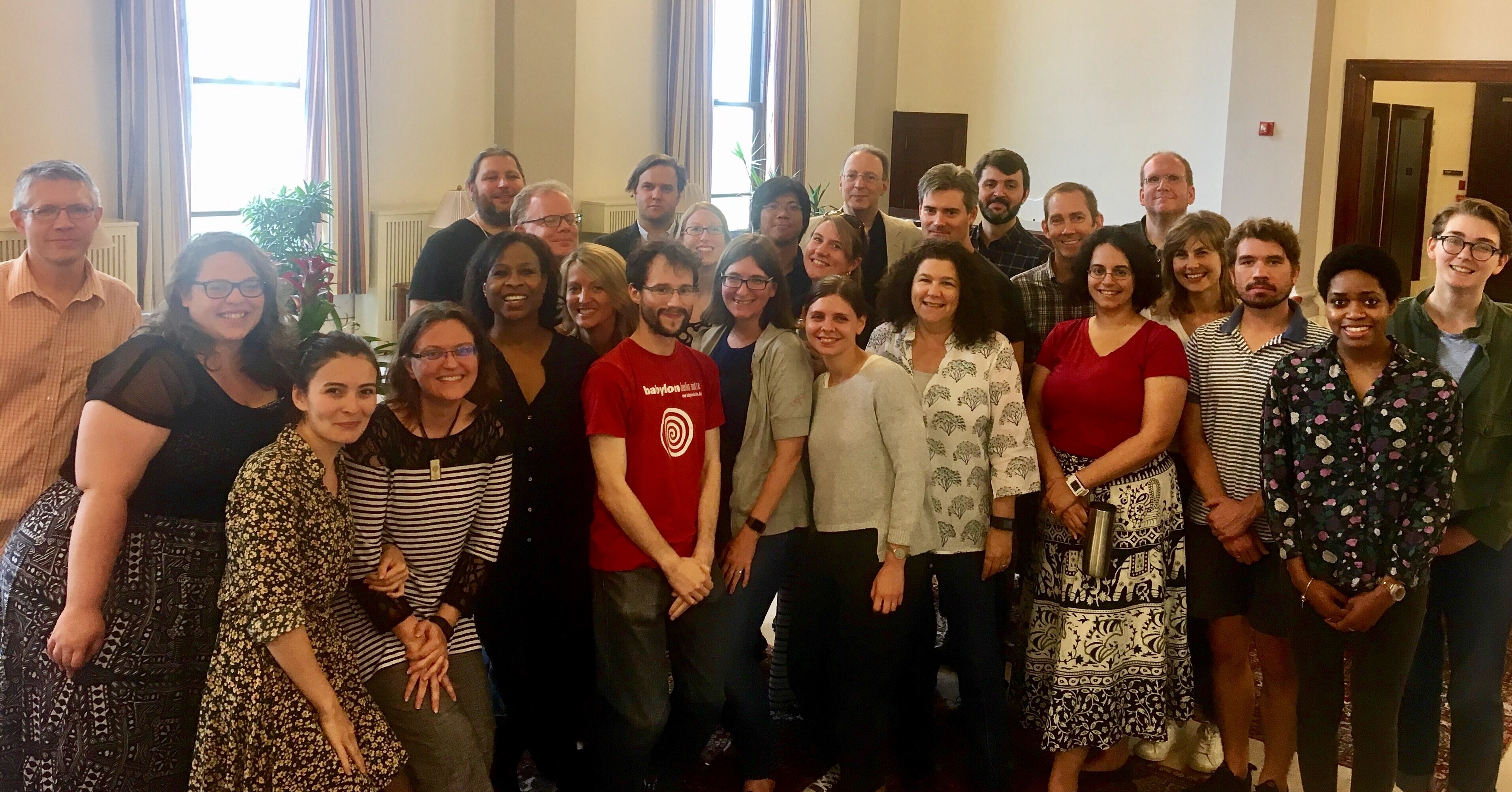Make your edition: models and methods for digital textual scholarship
Rationale
Digital humanists already have access to workshops and tutorials to help them learn to transcribe, edit, and tag a text in preparation for publishing a digital edition. Nonetheless, sophisticated markup expertise alone is not enough to make an edition, and learning nothing more than tagging may leave scholars staring at their angle brackets and wondering what to do next. Digital humanists cannot build editions that break new methodological ground solely on the basis of solutions prepared largely by others, and the focus of this Institute is on the creation of digital editions motivated by project-specific research questions and implemented from a perspective driven first by theory of edition, second by editorial methodology, and necessarily but less importantly by specific toolkits. In this respect, this Institute recognizes thinking digitally in ways driven by project-specific research goals as the most important feature of sustainable Digital Humanities training and education.
Instructors
![[Andrews picture]](images/tla.jpg) | Tara Andrews Institute of History University of Vienna |
![[Birnbaum picture]](images/djb.jpg) | David J. Birnbaum Department of Slavic Languages and Literatures University of Pittsburgh |
![[Cayless picture]](images/hc.png) | Hugh Cayless Duke Collaboratory for Classics Computing (DC3) Duke University |
| Ronald Haentjens Dekker Huygens Institute Royal Netherlands Academy of Arts and Sciences | |
![[Han picture]](images/nrh.jpeg) | Na-Rae Han Department of Linguistics University of Pittsburgh |
![[Kestemont picture]](images/mk.jpg) | Mike Kestemont Department of Literature University of Antwerp |
![[Olsson picture]](images/ljo.jpg) | Leif-Jöran Olsson Department of Swedish Language University of Gothenburg |
The instructors will be assisted by:
![[Keane picture]](images/gak.jpeg) | Gabrielle (Gabi) Keane Senior Institute Assistant University of Pittsburgh |
![[Bennett picture]](images/ekb.jpg) | Eleanor (Kyri) Bennett Institute Assistant University of Pittsburgh |
![[Sanders image]](images/ks_cropped.png) | Kaylen Sanders Institute Assistant University of Pittsburgh |
Participants

Thank you to all of our participants for a brilliant Institute!
Additional information
- Call for applications
- Lightning talk from the NEH Office of Digital Humanities Project Directors Meeting, 2016-09-16
- Follow us on Twitter: @makeyouredition, #MakeYourEdition2017.
- Digital editions created by Institute participants
 Make your edition: models and methods for digital textual scholarship has been made possible in part by a major grant from the National Endowment for the Humanities: Exploring the human endeavor. Any views, findings, conclusions, or recommendations expressed in materials developed for this project do not necessarily represent those of the National Endowment for the Humanities.
Make your edition: models and methods for digital textual scholarship has been made possible in part by a major grant from the National Endowment for the Humanities: Exploring the human endeavor. Any views, findings, conclusions, or recommendations expressed in materials developed for this project do not necessarily represent those of the National Endowment for the Humanities.
 Additional support and assistance has been provided by the University of Pittsburgh Kenneth P. Dietrich School of Arts and Sciences, Computing Services and Systems Development (CSSD), the Faculty Research and Scholarship Program (FRSP), and the Joseph M. Katz School of Business EMBA Program.
Additional support and assistance has been provided by the University of Pittsburgh Kenneth P. Dietrich School of Arts and Sciences, Computing Services and Systems Development (CSSD), the Faculty Research and Scholarship Program (FRSP), and the Joseph M. Katz School of Business EMBA Program.
 We are grateful to SyncroSoft for generously contributing complimentary extended trial licenses for their <oXygen/> XML editor for the use of Institute participants.
We are grateful to SyncroSoft for generously contributing complimentary extended trial licenses for their <oXygen/> XML editor for the use of Institute participants.
 eXist-db is an open source native XML database and application platform. TEI Publisher is an open source product of eXist Solutions.
eXist-db is an open source native XML database and application platform. TEI Publisher is an open source product of eXist Solutions.